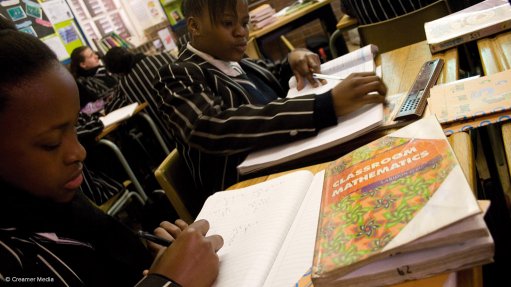
Photo by: Duane Daws
The Portfolio Committee on Basic Education today visited Inclusive Education South Africa (IESA), a non-governmental organisation that promotes and supports inclusive education practices in South Africa.
Acting Committee Chairperson Ms Nthibane Mokoto welcomed the visit as it gave Members of Parliament an insight into the implementation of inclusive education and first-hand information on what is happening in schools.
Ms Mokoto further welcomed IESA’s idea of using the Expanded Public Works Programme to employ teaching assistants to broaden the impact of an inclusive curriculum in the education system.
IESA believes that an inclusive education system is one that acknowledges the basic rights of children to education, the diversity of its learner population and recognises that children have different learning styles, needs and objectives. An inclusive education will be sufficiently flexible, supportive and co-operative to accommodate the diversity. It is a system that recognises and responds to the fact that we all have strengths and weaknesses, and might experience barriers to effective learning at times.
IESA’s primary aim is to promote and support the development of more inclusive practices in ordinary pre-schools and schools, and to foster increased support of children with learning difficulties, disabilities or other special needs.
The Committee heard that a challenge for the Department of Basic Education (DBE) is that the curriculum focuses on academic achievement. An exit certificate is only given at FET level, which means thousands of learners who are not strong academically fall by the wayside.
The DBE indicated that a steering Committee has been established to investigate the issue. DBE would like a three-stream curriculum that would include academic, vocational or skills, and technical.
The Committee also visited two full-service schools, Fairview Primary School in Grassy Park and Liwa Primary School in Nyanga, which have integrated children with special needs into their classrooms.
In 2014, 774 public ordinary schools were designated as full-service schools, with a total of 25 213 learners. North West has the highest number of full-service schools followed by Western Cape, Mpumulanga, Free State and KwaZulu-Natal – each with over 100 such schools. The Free State had the highest enrolment of learners with special education needs followed by Gauteng, KwaZulu-Natal and North West. The high enrolment numbers in Free State may be attributed to the fact that reportedly all schools have school-based support teams.
Ms Mokoto suggested a workshop on the matter for MPs. She said work must also happen at a constituency level to promote inclusive education.
ISSUED BY PARLIAMENTARY COMMUNICATION SERVICES